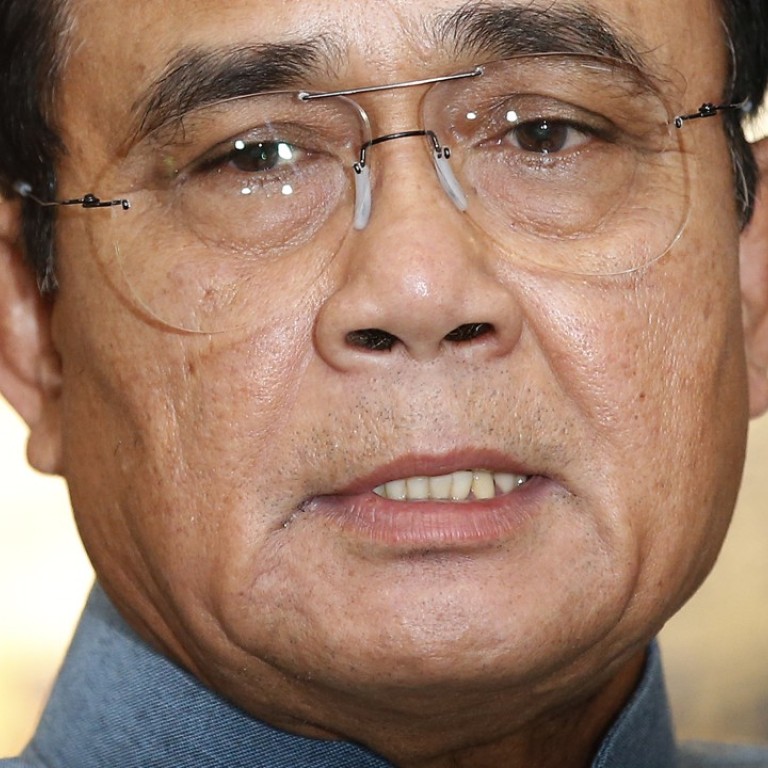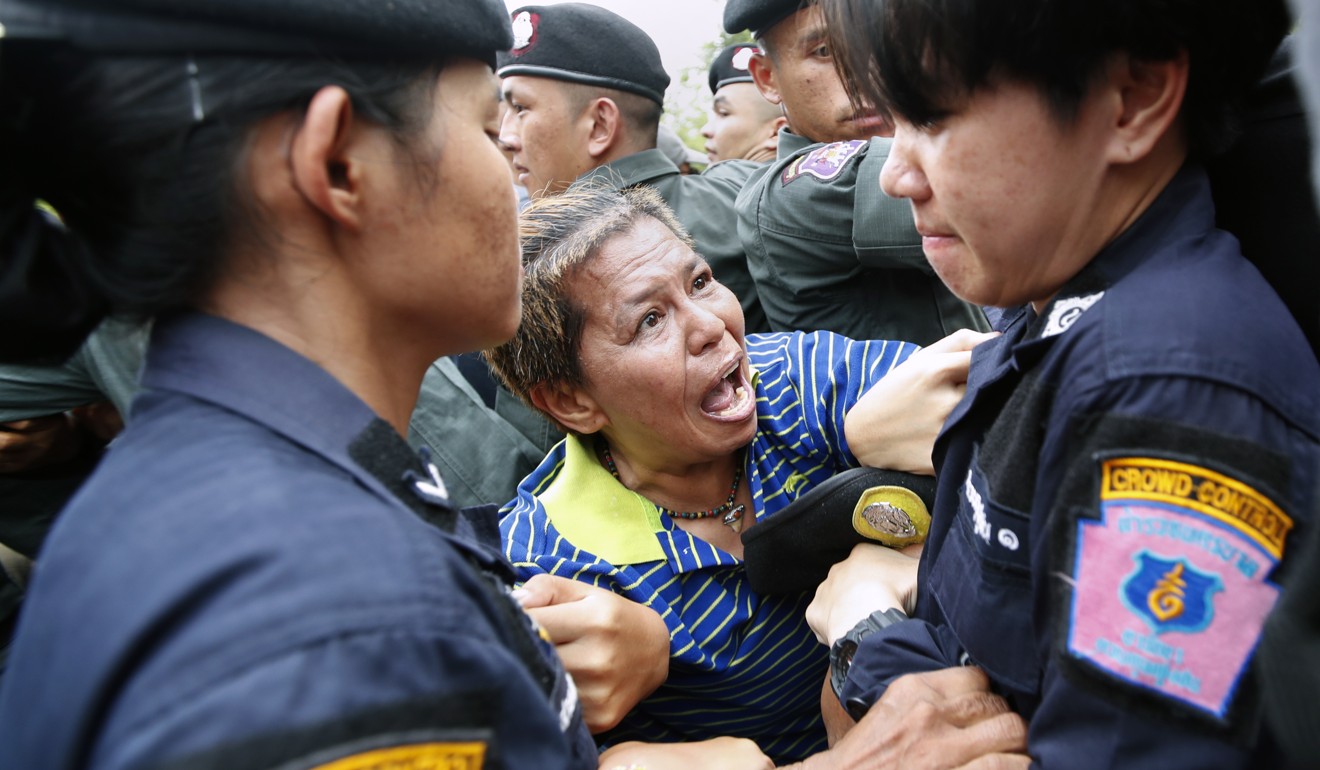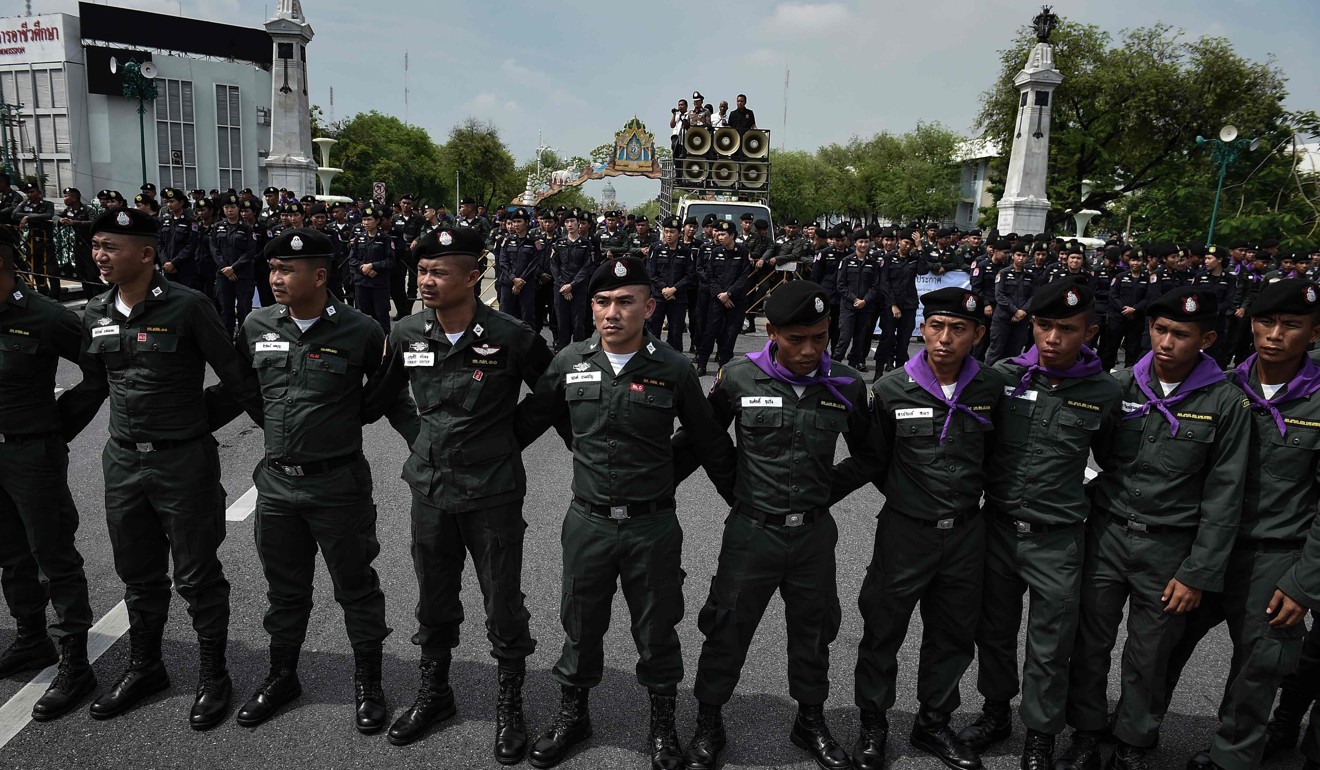
Thai junta seeks US$10 billion in new security budget ahead of 2019 election
Military spending has risen since former army chief Prayuth Chan-ocha seized power from the civilian government in 2014, fitting a pattern of generals generously boosting budgets after their periodic coups
The Thai junta unveiled a new US$10 billion defence and security budget Thursday, in what may be its final opportunity to allocate extra funds to the armed forces before a promised return to elections early next year.
Military spending has risen since former army chief Prayuth Chan-ocha seized power from the civilian government in 2014, fitting a pattern of Thai generals generously boosting budgets after their periodic coups.
The figures, proposed to the junta-picked National Legislative Assembly for the 2019 financial year, represent US$7 billion for defence, a US$1 billion increase since the military seized power four years ago.
In addition the regime is planning US$3 billion in security spending to manage “new threats”, maintain “internal peace and order”, prevent transnational crimes and cyberattacks as well as protect the monarchy.
The overall national budget is US$94 billion of which the largest chunk – US$15.3 billion – is earmarked for the Ministry of Education.

The spending proposals are part of a 20-year national strategy laid out last year that is legally binding for future administrations to follow.
Prayut, who is now prime minister, has finally suggested a return to elections in February, as many Thais weary of junta rule.
Paul Chambers, an expert on Thai politics at Naresuan University, said the latest budget may also be used to help “build and advertise” a military-backed political party for the upcoming poll.
“After all, in Thailand’s past, militaries have used defence budgeting in this manner,” he said.
Prayut is increasingly playing the politician rather than military man, taking image-boosting trips around Thailand and abroad.
In the four years it has been in power the junta has overseen a sluggish economy that is just starting to pick back up, with growth reliant on domestic spending, exports and a booming tourism industry.
The proposed defence budget boost also comes at a time when the junta’s reputation as a graft-buster has taken a hit following several high-profile scandals.

Critics say the junta has been opaque in its financial dealings and failed to address rampant corruption – despite seizing power from the elected government of Yingluck Shinawatra vowing to do so.
Pichai Naripthaphan, a former energy and deputy finance minister in the previous civilian administration, said spending has risen dramatically since 2006, when the military ousted Yingluck’s brother, Thaksin Shinawatra.
“If Thailand wants to develop the country the defence ministry budget must be cut in order that money could be spent on infrastructure projects which are more important,” he said.

.png?itok=arIb17P0)